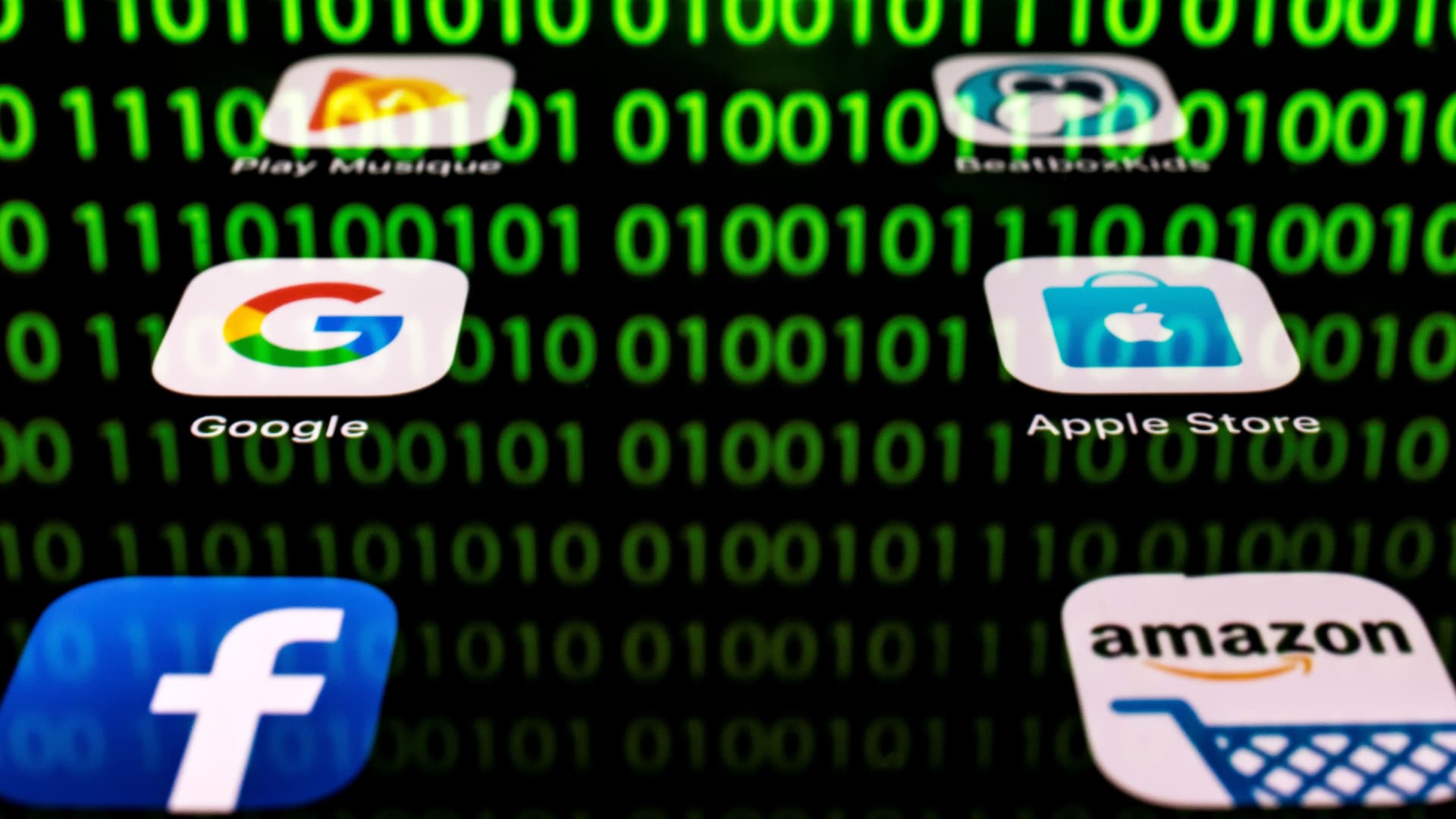This illustration taken on April 20, 2018, in Paris shows apps for Google, Amazon, Facebook and Apple, plus the reflection of a binary code displayed on a tablet screen.
Lionel Bonaventure | Afp | Getty Images
Alphabet shares rose more than 7% Monday morning following a report that tech giant Apple is in talks to license Gemini for future iPhones. Apple shares were up more than 2%.
Gemini is Google’s suite of generative artificial intelligence tools, ranging from chatbots to coding assistants.
According to a Bloomberg report, Apple is in talks with Alphabet-owned Google to let the iPhone maker license and build its Gemini AI engine into the iPhone.
Citing people familiar with the matter, Bloomberg said the two tech giants are “in active negotiations” for Gemini to power certain new features due to be released to the iPhone software later this year.
Apple’s next big iPhone update, iOS 18, is expected during its Worldwide Developers Conference. That’s when the company may talk more about its plans for generative artificial intelligence and when it usually talks about its latest iPhone software before it rolls out to consumers in the fall.
Apple CEO Tim Cook said the company is “investing significantly” in AI during the company’s annual shareholder meeting in February.
“Later this year, I look forward to sharing with you the ways we will break new ground in generative AI, another technology we believe can redefine the future,” Cook said.
The company also recently held discussions with OpenAI and has considered using its model, according to the sources cited by Bloomberg.
However, the report said, “the two parties haven’t decided the terms or branding of an AI agreement or finalized how it would be implemented.”
CNBC could not independently verify the Bloomberg report. Apple declined to comment and Alphabet did not immediately respond when contacted by CNBC.
— CNBC’s Katrina Bishop contributed to this report.

